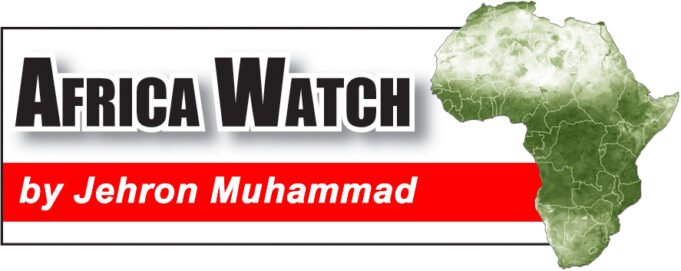The strangeness of writing a column about Africa and being married to an African in the middle of a political, economic and social crisis is personal and is substance for the current column. Don’t worry, my wife Zakia during the month of Ramadan is spending time with her mom, far removed from the epicenter of the conflict in Khartoum.
In a recent text message, she wrote: “There is an indefinite … sit-in, starting yesterday; there is no traffic in the triangular capital that includes, Khartoum, Omdurman and Bahri.” She added, “Sudan is at its worst, there is a great security chaos, cases of robbery, theft and rape is spreading with massive price increases becoming the norm.” She also suggests “famine” might not be far behind.
Giving substance to Zakia’s text, the UN envoy for Sudan warned in late March that the east African nation is heading for “an economic and security collapse” unless it addresses the political paralysis following October’s military coup and moves toward resuming a civilian-led transition.
Envoy for Sudan, Volker Perthes told the UN Security Council that the military’s “violent repression” of protest movement against the military coup is continuing and the absence of a political agreement on returning to a civilian-run government path has already led to a deteriorating economic, humanitarian and security situation in the country.
Near-daily street protests demanding a return to civilian rule have been met by a crackdown on protesters that has killed 80 people, mostly young men, and injured over 2,600 others, according to a Sudanese medical group, reported Reuters. “Western governments and world financial institutions suspended their assistance to Sudan in order to pressure the generals to return to civilian-led government,” the news agency continued.
According to the British daily The Guardian, “What we are seeing in Sudan isn’t the work of a few bad apples, but the actions of a well-managed apparatus bent on denying people’s basic rights, trying to break the will of the protest movement while also buying time to cement their own power.”
The brute force used by the military, according to my Sudanese wife, is on the increase. Africa researcher at Human Rights Watch, Mohamed Osman wrote an opinion piece on the ongoing crackdown. His article, titled, “Sudan’s military is brutally suppressing protests—global action is needed,” stated that every avenue to resolution appears to be blocked. Mr. Osman writes, “targeted sanctions on individuals implicated in serious human rights abuses and war crimes, are needed to change the behavior of security forces and curb repression.”
He adds, “If Sudan’s (military leaders) see that the international community is willing to impose consequences, peaceful protesters should enjoy greater freedom to express themselves and organize.”
Sounds more like a pipedream. Why would the military regime stop suppressing a protest movement bent on their demise? With mounting deaths of demonstrators and thousands injured, and even more detained, many held in incommunicado, my activist wife puts limited hope in international assistance or restraint from the military regime. And, with the U.S. and its NATO allies and proxies bogged down with the war between Russia and Ukraine, Africa, in this case Sudan, must figure out its own way, utilizing local and regional resources toward independence.
Perthes said the UN, African Union and the eight-member regional group the Intergovernmental Authority in Development (IGAD) recently agreed to join efforts to facilitate Sudanese-led political talks.
During an interview with the Saudi-owned Asharq Al-Awsat, the head of the ruling council, and coup leader, General Abdel Fattah al-Burham said, that the premier would not be named before talks with political forces, an apparent softening of his position.
“When all the civilian forces sit together and come to a consensus between them, we are ready to sit and come to an understanding with them or to present them with whatever they need from the military side,” he said.
All this is being said while security forces are perpetrating undo violence, including rape against peaceful protesters.
At a barricade in Omdurman, one of Khartoum’s sister cities, a 21-year-old student named Mohammed Hassan, not to be deterred told a news outlet, “We will continue to barricade, strike, protest, and all forms of resistance until we bring down the coup. Our future is in democracy, not dictatorship.” Follow @JehronMuhammad on Twitter













